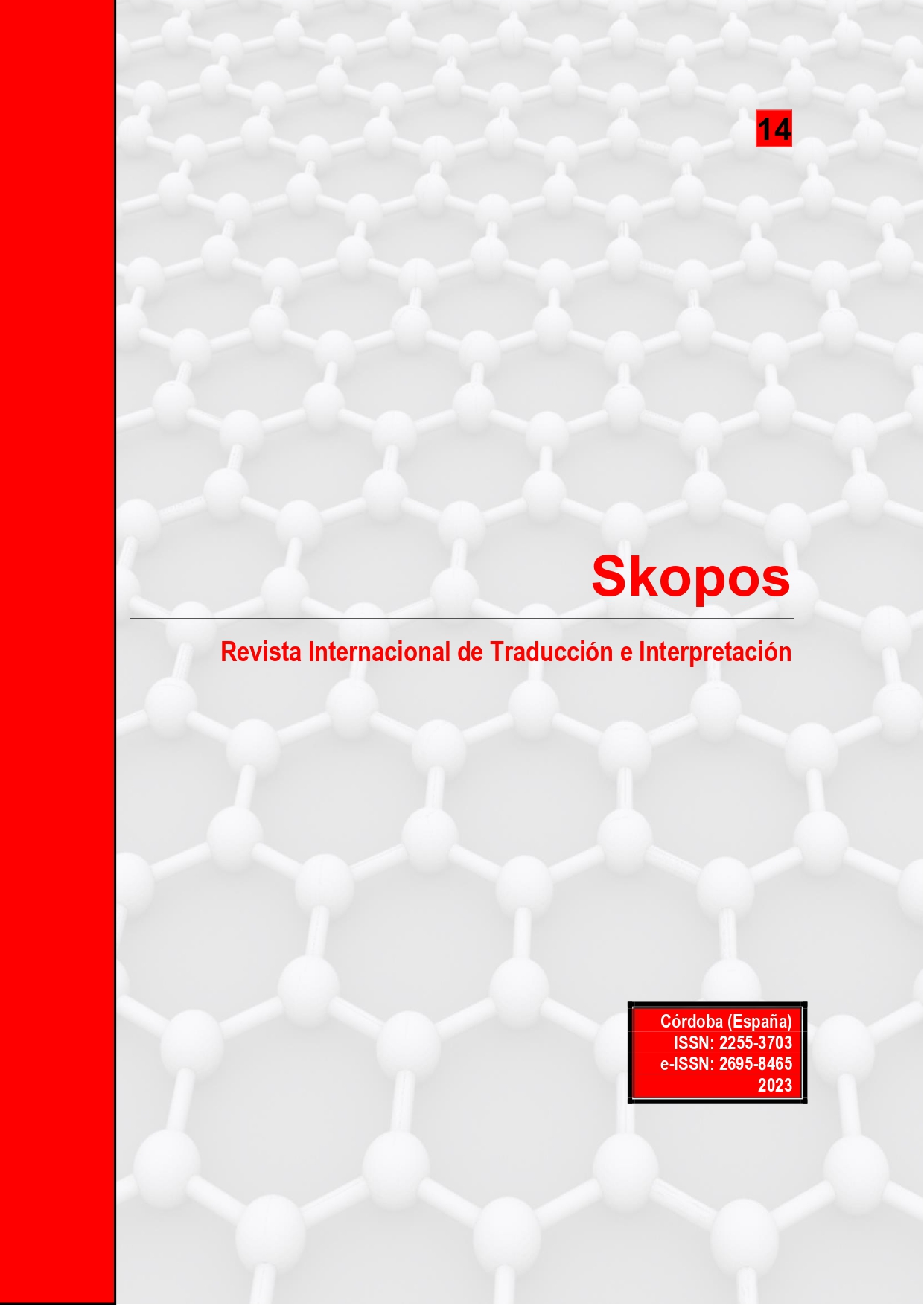The The Forgotten Speech Tag: An In-depth Look into the Translation of Speech Tags into Lithuanian in George Orwell's "Animal Farm"
DOI:
https://doi.org/10.21071/skopos.v14i.16214Abstract
This paper analyses and compares the three currently available Lithuanian translations of George Orwell’s novel Animal Farm (1945) by Arvydas Sabonis (1991), Edita Mažonienė (2021) and Jovita Liutkutė (2022) with special attention given to the frequently overlooked translation of speech tags. It aims to reveal the peculiarities as well as assess the quality of the translations of the collected speech tags. This is achieved by applying quantitative and qualitative analysis methods, i.e. by systematising the relevant elements of the text and analysing them according to the chosen classification of translation shifts as well as comparing the collected data of each individual translation. One of the most notable aspects of the translations, as observed during the analysis, is a significant variety in the translations of pronouns and verbs, occurring due to the application of the translation shifts of specification and implicitation, which function on a semantic level. These aspects reflect the linguistic preferences of translators when translating into synthetic languages and highlight the richness of the Lithuanian language.
Key words: translation shifts, speech tags, Animal Farm
Downloads
Veröffentlicht
Zitationsvorschlag
Ausgabe
Rubrik
Lizenz
Política propuesta para revistas que ofrecen acceso abierto. Aquellos autores/as que tengan publicaciones con esta revista, aceptan los términos siguientes:
- Los autores/as conservarán sus derechos de autor y garantizarán a la revista el derecho de primera publicación de su obra, el cuál estará simultáneamente sujeto a la Licencia de reconocimiento de Creative Commons que permite a terceros compartir la obra siempre que se indique su autor y su primera publicación esta revista.
- Los autores/as podrán adoptar otros acuerdos de licencia no exclusiva de distribución de la versión de la obra publicada (p. ej.: depositarla en un archivo telemático institucional o publicarla en un volumen monográfico) siempre que se indique la publicación inicial en esta revista.
- Se permite y recomienda a los autores/as difundir su obra a través de Internet (p. ej.: en archivos telemáticos institucionales o en su página web) antes y durante el proceso de envío, lo cual puede producir intercambios interesantes y aumentar las citas de la obra publicada. (Véase El efecto del acceso abierto).






